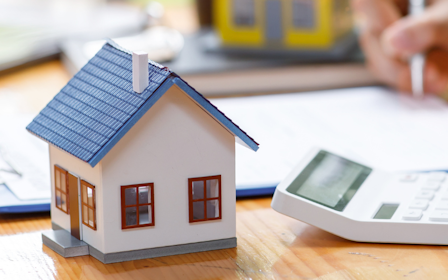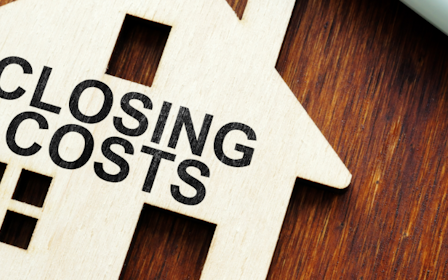Because buying a house is perhaps one of the largest financial decisions you'll make in your lifetime, you should understand every facet of the homebuying process before buying a home. One of the more nuanced elements is the interest rate for your mortgage loan, which will ultimately affect how much you pay for the property when all is said and done.
Often, lower mortgage rates lead to higher home prices, while a higher rate can force sellers to lower their asking price. So, understanding the relationship between interest rates and home prices can make a big difference in how much you pay in the long term. If you don't know what you're doing, more of your money could go to the bank and not build equity.
With this blog, you’ll uncover how interest rates influence home prices, ensuring you make an informed decision on your property investment. Dive in and learn how to navigate these financial waters with confidence and secure your dream home!
Understanding Home Affordability
The first step to buying a home is making sure you can afford it. However, affordability can depend on a few different factors, such as:
- Interest Rates—The higher the interest rate, the more you'll have to pay to your mortgage lender (more on this later). The amount of interest could also impact your monthly payment.
- Homeowners Insurance—Mortgage lenders don't lend money without a homeowners insurance policy in place. These policies can be paid annually or monthly, and depending on where you live (and the condition of the home), your rate can increase your monthly bills significantly.
- Loan Term—The longer you have to pay off a loan, the lower your monthly payment. However, having a longer repayment term means you'll pay more in interest to the lender overall.
Understanding each of these factors can help you figure out your actual budget, both in the short and long term. Overall, you want to try and build as much equity as possible and pay as little as possible in interest to the mortgage lender.
How Are Mortgage Interest Rates Determined?
Mortgage interest rates are determined by multiple factors, some of which are beyond your control. For example, the Federal Reserve can increase the Federal Funds rate, making it more expensive for lenders to do business. When that happens, lenders increase their rates to compensate. Other factors can include your credit score, the type of home loan you have (e.g., FHA vs. a conventional loan), and the amount of your down payment.
Each lender may also have its own rules and procedures for determining the interest rate. So, comparing multiple lenders allows you to see which options are available and ensures you make the right choice for your financial needs.
How Much Does the Interest Rate Change the Price of a House?
Since there are so many factors that influence your loan interest rate, you may be wondering what the correlation is between home prices and interest rates. As we mentioned, the housing market tends to support higher purchase prices when rates are low, but that can also mean you build equity faster since more of your monthly payment goes toward the principal of your mortgage and not the interest.
Here's a hypothetical breakdown to illustrate interest rate vs. home price. Before we begin, let's assume you can make a down payment of 20 percent of the asking price, and that you have decent credit (700 or higher). Also, we're assuming that you're getting a 30-year fixed-rate mortgage. That way, the interest doesn't fluctuate over time.
For this example, let's say you wanted to purchase a $400,000 house. Since your down payment is $80,000, you'll need a mortgage loan for the remaining $320,000. If you get a loan with a 4% interest rate, you will pay 4% of whatever principal balance remains each month.
As far as monthly mortgage payments on principal and interest, that would translate to around $1,527. For the duration of the loan, you'll pay an extra $229,000 in interest fees to the lender. So, even though you only borrowed $320,000, you'll pay around $549,000 in principal and interest over 30 years.
Now, what if you could lower your interest rate by one percent? That would translate to a monthly mortgage payment of $1,349, and you would only pay a total of around $165,000 over 30 years. So, that means you'll save over $64,000 overall, which is a huge chunk of change.
As you can see, when comparing home prices vs. interest rates, even a single percentage point can make a massive difference. For that reason, you want to lower your interest rate as much as possible.
How to Get a Lower Interest Rate on a Mortgage
Fortunately, you don't always have to settle for a high-interest rate, but depending on your situation, you may have to put in some extra work to yield substantial savings. Here are the best ways to get a lower mortgage interest rate.
- Build Your Credit Score—Just because you can buy a house with a relatively middling score (i.e., 660) doesn't mean you should. If possible, build your credit score by paying off debts and improving your debt-to-income (DTI) ratio. While this may take a while, remember that you could save tens of thousands of dollars over the long term. Ideally, your score should be over 750, but it's better to have it at 700 or higher.
- Increase Your Down Payment—A down payment is the amount of money you pay for the house out of pocket. So, the higher the amount, the less you have to borrow. Using our example from above, if you're able to pay another $10,000 toward the down payment, that would translate to about $7,000 in savings over 30 years, even if nothing else changes. Your monthly payment will also be reduced by about $50.
- Shorten Your Mortgage Term—Most people get a 30-year fixed-rate mortgage because it translates to cheaper monthly payments than a 20-year fixed loan or less. However, if you reduce the term to 15 years, you can save over $100,000 overall. Using our numbers from above, a $400,000 home (with a $80K down payment) at four percent over 15 years comes with a monthly payment of $2,300. However, you only pay $106,000 over 15 years instead of $229,000 over 30.
- Refinance When Possible—Sometimes, you may have to settle for a relatively high-interest rate. However, when rates go down, you can sometimes refinance your mortgage and lock in the lower rate. Often, this is a good idea because it will help you save money in the long term. Again, a single percentage point can make a world of difference.
Getting a Lower Mortgage is a Balancing Act
As you can see, comparing home prices and interest rates can lead to major savings. Overall, buying a house is a complicated process, and it's imperative to know what options are available before making a final decision.
If possible, work on building your credit score. However, also recognize that it pays to compare multiple financing options, and if you can't make it work right now, you can often refinance in the future (if necessary). There is no "right" answer, but the goal is to pay more for the house itself and less to the lender. This way, you can build equity faster.
Ready to find your dream home? We offer new build homes to fit a variety of lifestyles and budgets. Start your search today!
Home Prices and Interest Rate FAQ
Should I Buy When Interest Rates Are High or Low?
Ideally, you want to buy a home when interest rates are low. However, economic factors beyond your control can keep rates high, so if you're ready to buy a house now, it's often better to do so and then refinance later on when rates fall. This is especially true if you're currently renting, as your monthly rent payment won't build any equity.
One option is to buy a new construction home from homebuilders such as Century Communities. Not only do you not have to haggle for a better price since pricing is fixed, but you may also be able to save money on interest by financing with the builder’s in-house lender (like Inspire Home Loans with Century Communities). Browse our homes and new home financing options to determine the right one for your needs.
What If I Go for a Lower Home Price Instead of a Lower Interest Rate?
The interest rate vs. home price is often inverse. So, a higher interest rate means a lower asking price, and vice versa. Overall, it's often better to have a higher home price and a lower interest rate. This way, more of your monthly payment goes toward the principal balance, meaning you're earning more equity faster. If you go the other way (low-price home and high interest), more of your money goes to the lender.


